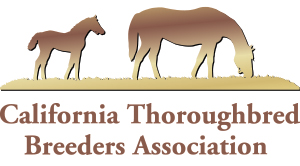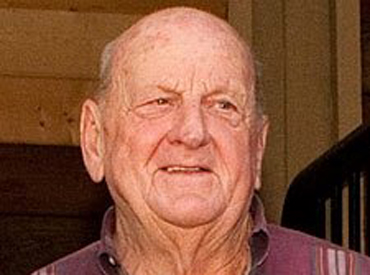By Bloodhorse.com
LITTLE ROCK, Ark. (Dec. 27, 2017) — Trainer John Charles “Jack” Van Berg, a Hall of Fame trainer and the son of Hall of Fame trainer Marion Van Berg, died Dec. 27. The 81-year-old conditioner had been hospitalized at Baptist Medical Center in Little Rock, Ark., due to complications from cancer.
Services will be held Jan. 8 at the Hot Springs Convention Center in Hot Springs, Ark. <p>
Van Berg, who entered the Hall of Fame in 1985, ranks fourth on the all-time win list for North American-based trainers with 6,523 victories. His runners earned more than $85 million.
His most famous runner was Alysheba, winner of the 1987 Kentucky Derby (G1) and Preakness Stakes (G1). After being named champion 3-year-old male of 1987, he was dubbed “America’s Horse” and earned Horse of the Year and champion older male crowns following his victory in the 1988 Breeders’ Cup Classic (G1). Alysheba, who entered the Racing Hall of Fame in 1993, raced for Dorothy and Pamela Scharbauer and earned a then record $6,679,242 (surpassing John Henry) with 11 wins from 26 starts.
Van Berg also had classic success with Gate Dancer, winner of the 1984 Preakness.
Among the many accomplishments of Van Berg, he was the first trainer to reach the 5,000-win plateau on July 15, 1987. In 1976 he set a record for the most wins in a year with 496 and was also the leading trainer by earnings. He won the Eclipse Award for outstanding trainer in 1984.
Van Berg’s beginnings were in the West, where he sent out his first winner in 1957. A few years later, he was the leading trainer at Ak-Sar-Ben in Nebraska for years, where he was able to be the leading trainer in the country by wins nine times between 1968-86. He earned the Eclipse Award as outstanding trainer in 1984.
At the time Alysheba came along, Van Berg had more than 150 horses in training for some 35-40 clients. The majority of his horses trained at his center near Goshen, Ky.
A $500,000 sale yearling bred by Preston Madden, Alysheba “was a little light because he hadn’t been prepped that much,” Van Berg said in 1987. “He had an air about him. He was very well balanced, and he had that look.”
While not as accomplished as others for the classics, Alysheba had an entrapped epiglottis, and a new technique was performed by Dr. Scott Merrell following a second-place finish in the San Felipe Stakes (G1). Alysheba returned to the track to finish first in the Blue Grass Stakes (G1) at Keeneland, but was disqualified and placed third. In a famed Derby stretch run where he bumped with Bet Twice and almost fell, Alysheba rallied under Chris McCarron to win by three-quarters of a length.
The Blood-Horse’s editor, Ed Bowen, wrote after the Derby: “The day after he won the Kentucky Derby with Alysheba, Van Berg spoke of his father’s gruffness with affection. As a boss, Marion Van Berg had a tendency to call his male help ‘boy,’ regardless of whether the individual being addressed happened to be his grown son.
“‘I never sassed him, because I had too much respect for him,” the son said, and he recalled that his father’s technique of helping others learn often was to let them try for themselves, and then point out their mistakes.”
After his win in the Preakness, he failed to land the Triple Crown finishing fourth behind Bet Twice, Cryptoclearance, and Gulch in the Belmont Stakes (G1). Later that year Alysheba finished second to fellow Derby winner Ferdinand in the Breeders’ Cup Classic.
The following year Alysheba would win seven of nine starts and close out his career with four straight grade 1 wins: the Philip H. Iselin Handicap at Monmouth Park, the Woodward Handicap at Belmont Park, the Meadowlands Cup Handicap, and the Breeders’ Cup Classic at Churchill Downs, where he defeated runner-up Seeking the Gold by a half-length.
Van Berg later moved his base to Southern California, but he was unable to maintain his winning level. A mid-1980s land development deal soured, and so did his business. He resurfaced in the 2010s at Oaklawn Park and began to rebuild his stable. He was recognized of late motoring around the backstretches on a scooter and he would often watch his horses train from a pickup truck parked on the grandstand apron.


